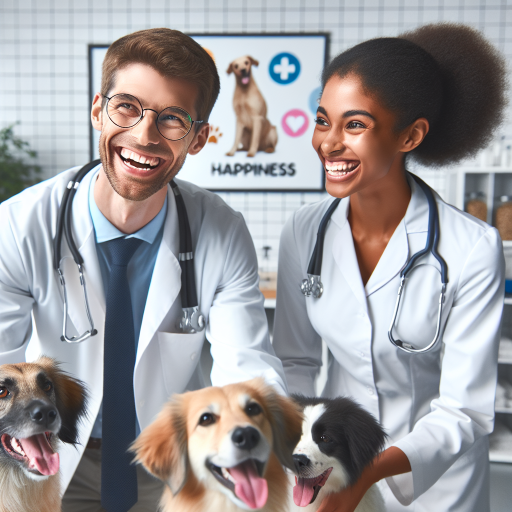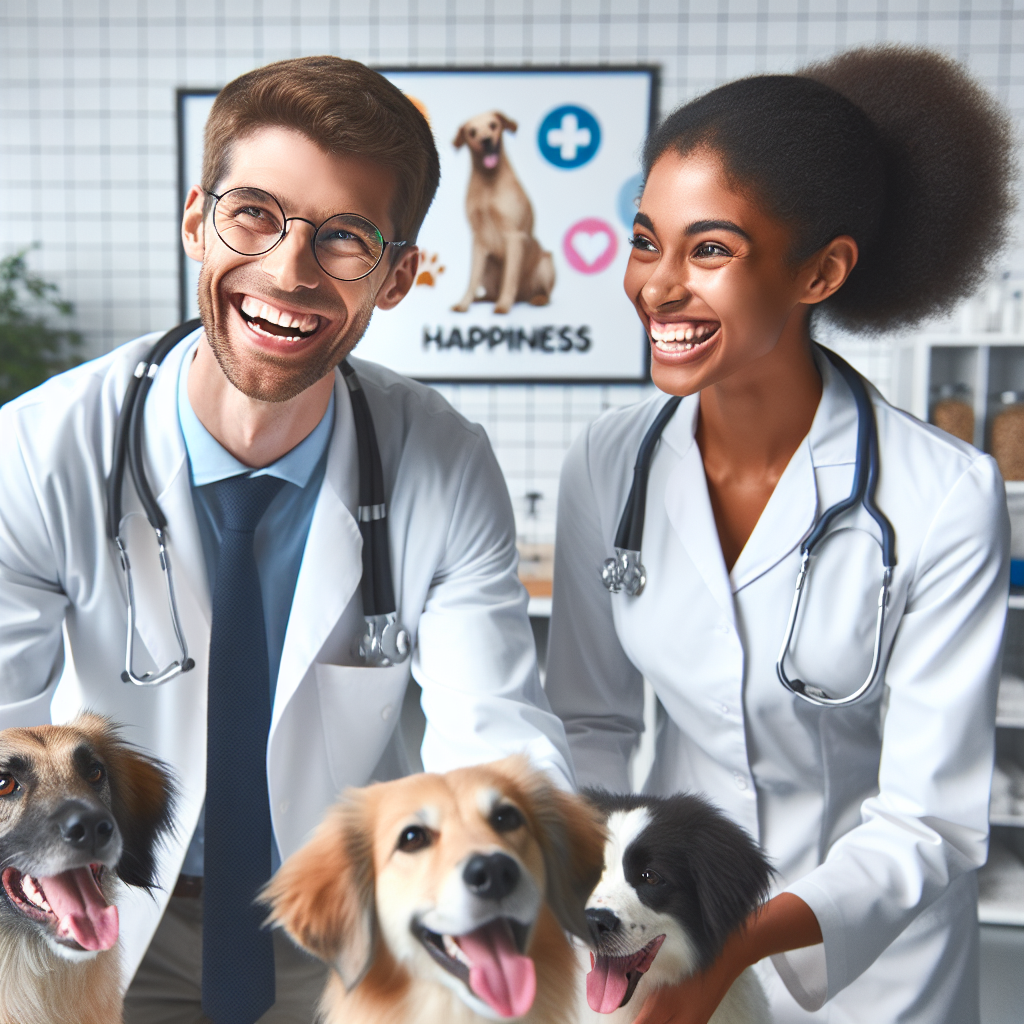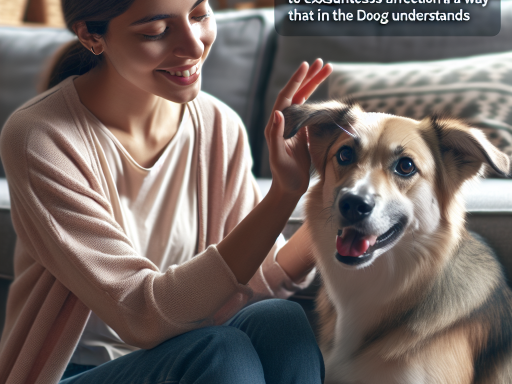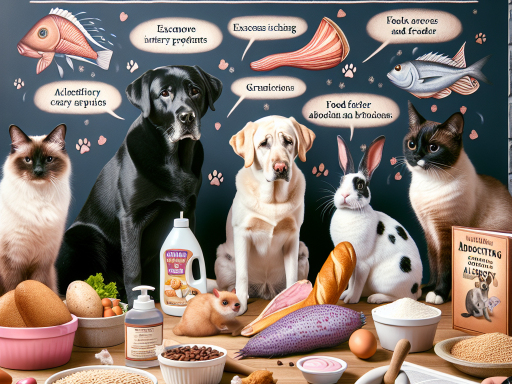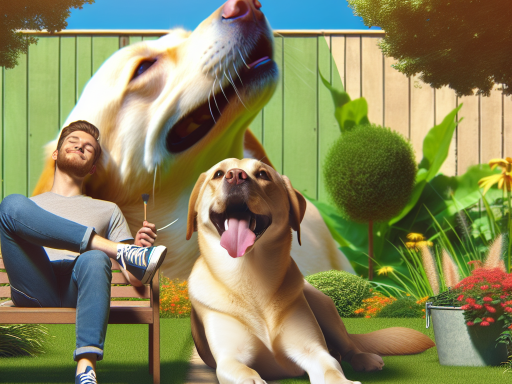Introduction
Hello there, fellow dog lover! 🐶 Have you ever found yourself gazing at your furry friend and wondering if they’re truly happy? Well, you’re not alone. Understanding your dog’s emotional state is essential for building a deeper bond and ensuring their overall well-being. After all, a happy dog makes for a happy owner, right?
In this piece, we’re going to embark on an exciting journey to uncover the delightful signs that indicate your canine companion is living their best life. Now, before we dive into the specifics like a wagging tail or playful behavior, let’s set the stage with a warm and friendly introduction to the world of canine happiness.
Why Understanding Canine Happiness Matters
Dogs, much like humans, exhibit a wide range of emotions. They can’t speak to us in words, so they rely on their body language and behaviors to communicate how they feel. By paying attention to these signals, you can ensure your pup feels safe, loved, and content.
It’s also worth noting that a happy dog is generally a healthier dog. Emotional well-being impacts physical health, reducing stress levels and promoting a stronger immune system. So, by tuning into your dog’s happiness, you’re not just making them feel good; you’re contributing to their longevity and overall vitality.
Let’s Get to Know Our Furry Friends
Dogs come in all shapes, sizes, and personalities, but there are universal signs that can help you gauge their happiness. It’s like learning a new language—a fun and rewarding one, at that!
Before we dive into the delightful details, it’s important to remember that every dog is unique. What makes one dog wag their tail with joy might not have the same effect on another. So, keep in mind that these signs are general indicators, and always consider your individual pup’s personality and preferences.
The Joy of Being a Dog Parent
As a dog parent, you have the incredible privilege of sharing your life with a creature who loves you unconditionally. Dogs bring endless joy, laughter, and companionship, transforming ordinary days into extraordinary adventures. But with great joy comes great responsibility, and part of that responsibility is ensuring your furry friend is as happy as they can be.
So, grab a cozy seat, perhaps a cup of your favorite beverage, and let’s embark on this journey together. We’re about to explore some heartwarming, tail-wagging signs that your dog is happy. Trust me, by the end of this series, you’ll be an expert at reading your pup’s joyful signals!
Stay Tuned!
In the next sections, we’ll delve into specific behaviors and body language that reveal your dog’s happiness. From a wagging tail to a healthy appetite, each sign will bring you closer to understanding your beloved canine companion. But for now, let’s bask in the joy of being a dedicated dog parent, ready to unlock the secrets of our furry friends’ happiness.
So, are you ready to become a dog happiness detective? Let’s do this! 🐾
Wagging Tail and Relaxed Body
Hey there, dog lovers! Let’s chat about one of the most heartwarming sights for any pet owner – a wagging tail and a relaxed body. It’s more than just a cute picture; it’s a sign that your furry friend is feeling good and happy. But what exactly does a wagging tail and a calm body tell us about our dogs? Let’s dive in!
The Tale of the Wagging Tail
First things first, let’s talk about that wagging tail. A dog’s tail can be quite the communicator. When you see that tail moving back and forth, it’s almost like your dog is waving a friendly “hello” to the world. But did you know that the way a tail wags can tell you a lot about your dog’s emotional state?
- High and Fast Wag: This usually means your dog is super excited or happy. Think about the moment you come home from work, and your dog greets you at the door – that’s a high and fast wag situation!
- Low and Slow Wag: This can indicate that your dog is feeling a bit more cautious or unsure. It’s essential to pay attention to the context here. If they’re around new people or in a new environment, they might just be trying to figure things out.
- Full-Body Wag: Now, this is the jackpot of happiness! When your dog’s whole body gets into the wagging action, you can be sure they’re feeling joy and comfort.
Reading the Relaxed Body
Now, onto the relaxed body. Just like us, dogs show their comfort and peace through their body language. A relaxed dog will have a loose, easy posture – no stiff muscles or rigid movements here. Here are a few signs to look for:
- Loose Limbs: If your dog’s limbs are relaxed and they’re not holding any tension in their body, it’s a good sign they’re at ease.
- Soft Movements: Gentle and fluid movements, as opposed to jerky or abrupt ones, indicate a relaxed demeanor.
- Play Bow: Ever seen your dog lower their front half while their back end stays up, tail wagging? That’s a play bow and a clear sign they’re in a friendly and relaxed mood!
When to Be Concerned
While a wagging tail and relaxed body are generally good signs, it’s crucial to be aware of the bigger picture. If you notice any unusual behavior or if the wagging seems accompanied by other signs of distress, it might be worth a closer look.
For example, if your dog’s tail is tucked between their legs or if they seem overly anxious despite the wagging, it could indicate stress or discomfort. In such cases, a trip to the vet or a consultation with a professional trainer might be in order to ensure your pup is feeling their best.
Wrapping Up
So, next time you see your furry friend wagging their tail and displaying a relaxed body, take a moment to appreciate the simple joy and comfort they’re feeling. It’s their way of showing you they’re happy and content in your company. Keep an eye on those tails and bodies, and you’ll always have a good sense of how your dog is feeling!
Got any fun tail-wagging stories or tips? Share them with us – we’d love to hear from you!
Heading III: Playful Behavior and High Energy Levels
Have you ever noticed your furry friend bouncing around the house with boundless energy, ready to play at a moment’s notice? That’s a sure sign that your pet is in good spirits and feeling happy! Playful behavior and high energy levels are key indicators of a healthy and content pet.
When your dog or cat is feeling playful, they may engage in all sorts of fun activities like chasing after toys, running around the yard, or even playfully interacting with you. This is not only a sign of physical health but also mental stimulation and emotional well-being.
Playtime is crucial for pets as it helps them burn off excess energy, maintain a healthy weight, and strengthen the bond between you and your furry companion. So, make sure to set aside some time each day to play with your pet and keep them engaged and happy!
If you notice a sudden decrease in your pet’s playful behavior or energy levels, it could be a sign of underlying health issues. In such cases, it’s best to consult with your veterinarian to rule out any potential medical concerns.
Remember, a happy and playful pet is a healthy pet. So, keep those toys handy, get ready to play, and enjoy the endless joy and laughter that comes with having a lively and energetic furry friend by your side!
Now, go ahead and let the games begin! Your pet is counting on you for some fun and exciting playtime.“`html
IV. Healthy Appetite and Regular Eating Habits
Hey there, fellow dog lover! Let’s talk about something that’s super important for our furry friends: their appetite and eating habits. Just like us, dogs need a balanced diet to stay fit, happy, and full of energy. So, how can you tell if your dog has a healthy appetite and regular eating habits? Let’s dive in!
Signs of a Healthy Appetite
First things first, a healthy appetite is a great indicator that your dog is feeling good. Here are some tell-tale signs:
- Enthusiasm at Meal Times: Your dog should be excited when it’s time to eat. A wagging tail, eager eyes, and maybe even a little happy dance are all good signs.
- Consistent Eating: Your pooch should be eating a consistent amount of food each day. If they often leave their food untouched, it might be time to check in with your vet.
- Maintaining a Healthy Weight: Regular eating habits help maintain a healthy weight. An underweight or overweight dog may have underlying health issues related to their diet.
Creating Regular Eating Habits
Now that we know what to look for, how can we encourage our dogs to have healthy eating habits? Here are some tips:
- Set a Routine: Dogs thrive on routine. Try to feed them at the same times every day. This helps regulate their digestive system and ensures they know when to expect their next meal.
- Measure Portions: Overfeeding can lead to obesity, while underfeeding can leave your dog malnourished. Use the recommended portions for your dog’s size, age, and activity level. Your vet can help you determine the right amount.
- Choose Quality Food: High-quality dog food can make a world of difference to your pet’s health. Look for food that lists meat as the first ingredient and avoid fillers like corn and soy.
- Avoid Table Scraps: As tempting as it is to share your dinner with those puppy-dog eyes staring at you, human food can often be unhealthy for dogs. Stick to their prescribed diet to avoid any digestive issues.
When to Be Concerned
Sometimes, changes in appetite can indicate health issues. Here’s when you should consider seeking professional advice:
- Sudden Loss of Appetite: If your dog suddenly stops eating or shows a significant decrease in food intake, it could be a sign of illness. Don’t wait too long to consult your vet.
- Vomiting or Diarrhea: Frequent digestive issues can indicate food allergies, intolerances, or other health problems.
- Excessive Thirst: While this is more about drinking than eating, excessive thirst can accompany changes in appetite and point to conditions like diabetes or kidney disease.
Conclusion
Feeding your dog is more than just filling a bowl with kibble. It’s about ensuring they have a healthy, happy life. By watching for signs of a healthy appetite and establishing regular eating habits, you can help your furry friend thrive. Remember, when in doubt, your vet is always there to provide guidance and support. Happy feeding!
“`
Social Interaction and Affection Towards Owners
Have you ever noticed how your furry friend seems to light up when you walk through the door? Dogs are incredibly social creatures that thrive on companionship and interaction with their owners. Their love and affection know no bounds, and they often express it in the most heartwarming ways.
When your dog eagerly greets you with wagging tail, excited jumps, or gentle nudges, it’s their way of showing how much they care about you. This display of affection is not only endearing but also a sign of a strong bond between you and your pet.
Studies have shown that dogs form deep emotional attachments to their human companions, often viewing them as members of their pack. This loyalty and devotion translate into the way they interact with you, seeking your attention, approval, and affection at every opportunity.
Whether it’s cuddling on the couch, playing fetch in the backyard, or simply following you from room to room, your dog’s desire for social interaction is a testament to their love for you. They thrive on your presence and crave your attention, making them the ultimate companions for those seeking unconditional love and companionship.
As a responsible pet owner, it’s important to reciprocate this affection and bond with your dog. Take time out of your day to engage in interactive play, go for walks together, or simply snuggle up on the couch. These moments of connection not only strengthen your relationship but also contribute to your dog’s overall well-being and happiness.
Remember, dogs are social animals that require mental stimulation, physical exercise, and social interaction to thrive. By showering them with love, attention, and affection, you are not only fulfilling their emotional needs but also fostering a deep and meaningful connection that will last a lifetime.
So the next time your furry friend nuzzles your hand or curls up at your feet, take a moment to appreciate the bond you share. Cherish these moments of social interaction and affection, for they are a true testament to the unconditional love and loyalty that dogs offer their owners.
Relaxed Facial Expressions and Soft Eyes
Have you ever looked into your dog’s eyes and felt a peaceful, calming connection? That’s not just your imagination; it’s a sign of your furry friend’s relaxation and happiness! When dogs are at ease, their facial expressions and eyes can tell us a lot about their emotional state. Let’s dive into how you can recognize these cues and what they mean for your dog’s well-being.
Understanding Relaxed Facial Expressions
Dogs, much like us, have a range of facial expressions that reflect their feelings. A relaxed dog typically has a soft, open mouth, sometimes with their tongue gently hanging out. Their ears are in a natural position—not pinned back or overly perked up. Here are some specific signs to look for:
- Soft Mouth: A relaxed dog often has a slightly open mouth with a loose, wiggly tongue. This indicates they are calm and comfortable.
- Natural Ears: Their ears will be in a neutral position, neither flat against their head nor standing rigidly upright.
- Smooth Forehead: A worry-free dog won’t have furrowed brows or any tightness around their eyes.
The Magic of Soft Eyes
The eyes are truly the windows to the soul, and this is especially true for dogs. When your dog’s eyes are soft and relaxed, it’s a good indicator that they feel safe and happy. Look for:
- Gentle Gaze: Soft, slow blinking or a relaxed gaze towards you or their surroundings.
- No Whites Showing: If you can’t see much of the whites of their eyes (sclera), it means they’re not tense or stressed.
- Pupil Size: While changes in lighting can affect pupil size, generally, relaxed dogs will have normal, non-dilated pupils.
Building Trust and Comfort
Building a strong bond with your dog involves understanding these subtle cues. When you see your dog exhibiting relaxed facial expressions and soft eyes, it’s a sign that they trust you and feel secure in their environment. Here are some tips to reinforce this trust:
- Spend Quality Time: Regular, positive interactions like playing, walking, or simply sitting together can strengthen your bond.
- Respect Their Space: Always approach your dog calmly and avoid forcing them into situations where they might feel cornered or anxious.
- Positive Reinforcement: Reward relaxed behavior with treats, affection, and praise to encourage a calm demeanor.
What to Watch Out For
It’s equally important to be aware of signs that your dog might not be so relaxed. Tension around the eyes, a tightly closed mouth, or ears pinned back can indicate stress or discomfort. If you notice these signs:
- Give Them Space: Allow your dog to retreat to a safe, quiet place where they can relax.
- Assess the Environment: Look for any stressors or changes in their surroundings that might be causing anxiety.
- Consult a Vet: If your dog frequently appears tense or stressed, a visit to the vet can help rule out any underlying health issues.
Understanding and recognizing these subtle cues takes practice, but it’s well worth the effort. Not only does it help you ensure your dog’s well-being, but it also deepens the special bond you share. So, next time you gaze into those soft, loving eyes, remember you’re seeing a true reflection of a content and happy heart.
Eagerness to Explore and Engage in Activities
Have you ever noticed how your furry friend always seems ready to embark on a new adventure or join in on any activity you have planned? That eagerness to explore and engage in various activities is a clear sign of a happy and healthy dog!
When your dog eagerly approaches the leash for a walk or gets excited about playing fetch in the backyard, it indicates that they are feeling energetic and enthusiastic. Dogs thrive on mental and physical stimulation, so their eagerness to participate in activities is a positive indicator of their well-being.
As responsible pet owners, it’s essential to provide our furry companions with opportunities to explore their surroundings and engage in different activities. Whether it’s taking them on a hike through the woods, teaching them a new trick, or simply playing a game of tug-of-war, these activities help keep your dog mentally stimulated and physically active.
Remember, regular exercise and playtime are crucial for maintaining your dog’s overall health and happiness. Not only does it keep them physically fit, but it also strengthens the bond between you and your four-legged friend.
So next time your dog comes bounding towards you with a wagging tail and a toy in their mouth, embrace their enthusiasm and make time to engage in activities together. Whether it’s a leisurely stroll in the park or a game of hide-and-seek in the backyard, cherish these moments of joy and connection with your beloved pet.
By encouraging your dog’s eagerness to explore and engage in activities, you’re not only promoting their physical well-being but also nurturing their emotional health. A happy and fulfilled dog is a true testament to the love and care they receive from their devoted owner.
So let’s make a commitment to keep our furry friends active, engaged, and full of life. Together, we can create countless memories of joy, laughter, and fun-filled adventures that will strengthen the bond between us and our beloved canine companions.
